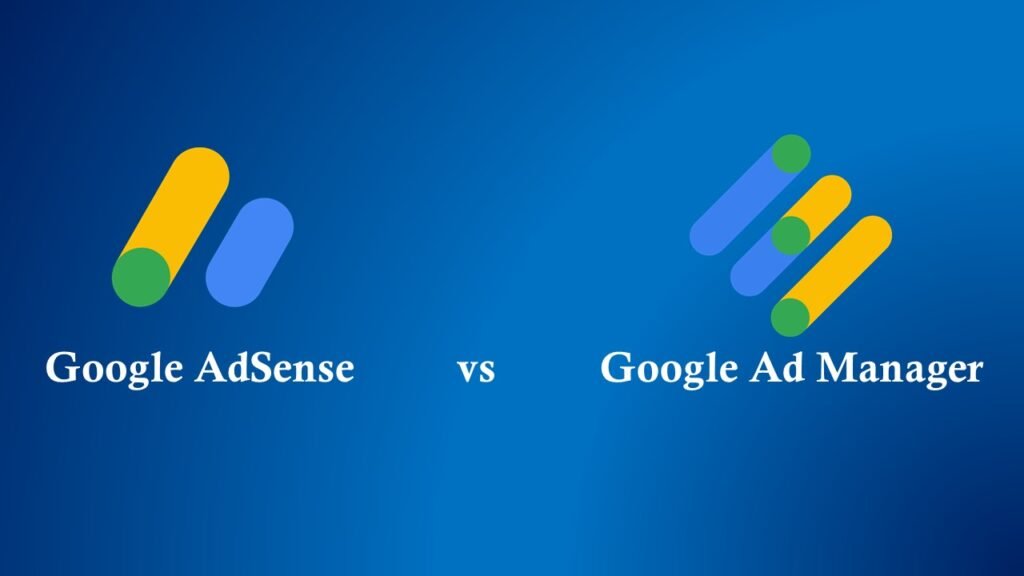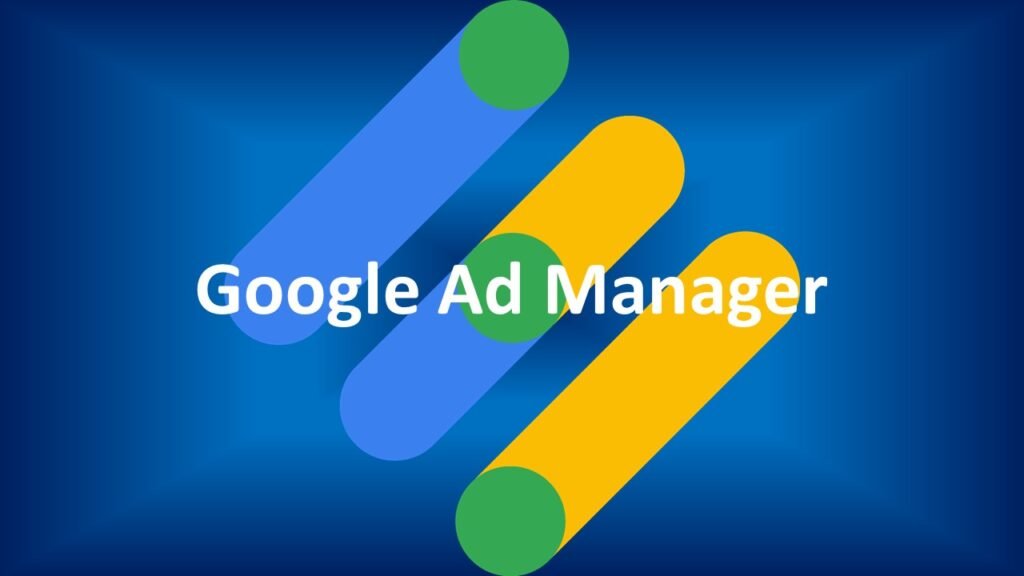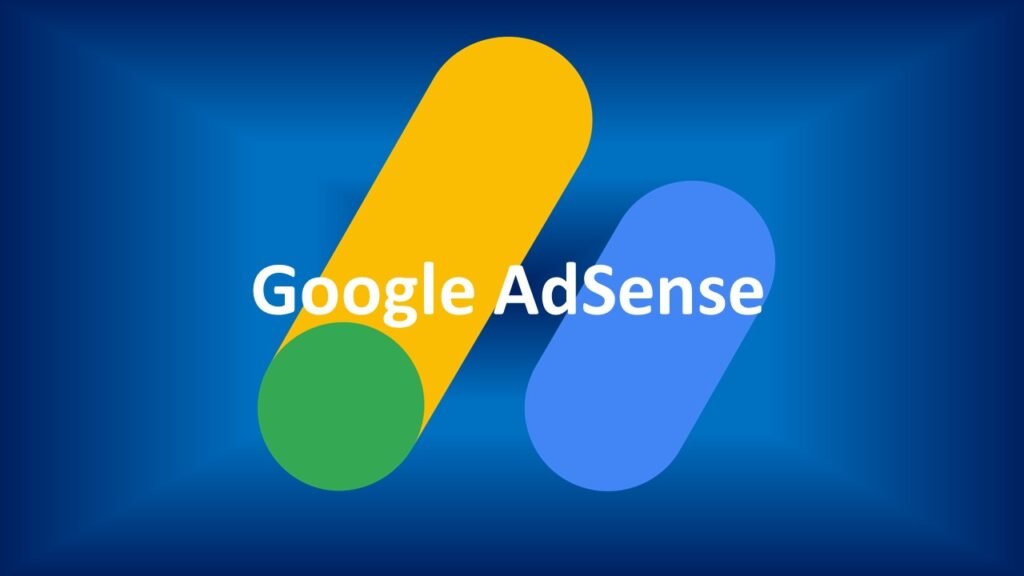
Discover the exciting difference between Google AdSense and Google Ad Manager
Google AdSense offers simple ad monetization for individual website owners, while Google Ad Manager provides advanced tools for larger publishers and advertisers to manage and optimize ad campaigns effectively.
AdSense and Ad Manager serve different purposes in the realm of online advertising. AdSense is primarily a monetization platform for website publishers, allowing them to display relevant ads on their content in exchange for revenue. It’s an automated system where advertisers bid for ad space, and Google matches ads to the content of the publisher’s website.
On the other hand, Ad Manager is a comprehensive ad management platform designed for larger publishers, agencies, and advertisers. It provides tools for ad serving, ad delivery, inventory management, and yield optimization. Ad Manager offers more control and flexibility over ad placements, targeting options, and pricing models compared to AdSense.
In essence, AdSense is more suitable for individual website owners looking for a simple way to monetize their content, while Ad Manager caters to larger organizations with complex advertising needs, offering advanced features for managing and optimizing ad campaigns across various channels and platforms.
There are many important factors that separate Ad Manager from AdSense, let’s take a look:
- User Base and Scale: AdSense primarily caters to individual website owners and small to medium-sized publishers, while Ad Manager targets larger publishers, agencies, and advertisers with more complex advertising needs.
- Monetization vs. Management: AdSense focuses on website monetization by providing tools for displaying ads and earning revenue, whereas Ad Manager offers comprehensive ad management solutions for planning, executing, and optimizing ad campaigns.
- Automation vs. Control: AdSense operates on a largely automated system where Google handles the ad serving and optimization processes. In contrast,
Ad Manager provides users with more control and customization options, allowing them to manage their ad inventory, set pricing, and target specific audiences. - Targeting Capabilities: Ad Manager offers advanced targeting capabilities, including demographic targeting, interest-based targeting, and remarketing, allowing advertisers to reach highly specific audiences.
AdSense, while still providing some targeting options, is more limited in its capabilities compared to Ad Manager. - Reporting and Analytics: Ad Manager offers more robust reporting and analytics tools, providing users with detailed insights into ad performance, audience engagement, and revenue metrics.
AdSense offers basic reporting features, but Ad Manager provides more advanced analytics for larger publishers and advertisers. - Ad Formats and Placements: AdSense offers a limited range of ad formats and placements, primarily focused on display ads and text ads.
Ad Manager provides a wider variety of ad formats, including display, video, native, and mobile ads, and offers more flexibility in ad placement options.
Google Ad Manager: Advanced ad campaign management. Google AdSense: Monetize websites easily. Understand the contrast in the table below:
| Feature | Ad Manager | AdSense |
|---|---|---|
| Preferred Deals | Deals interface allows you to set up Preferred Deals for fixed CPMs with buyers or Private Auctions with floor prices with multiple buyers. | No possibility to set up Preferred Deals. |
| Filtering and Blocking | Account-level filtering: *Google-certified vendors blocking *URL blocking *General category blocking (if available in your language) *Sensitive category blocking *Ad review center: review and approve/disapprove ads from various advertisers *Advertiser blocking *Ad technologies blocking *Cookie & data usage blocking Blocking rule filtering: *Google-certified vendor blocking *URL blocking *General category blocking (if available in your language) *Sensitive category blocking *Advertiser blocking *Cookies and data usage (non-Google demand) blocking *User-based data (Google Demand sources) blocking Opt in to the following: *Sensitive categories *Ad technologies Learn more about protections. | Account level filtering: *Google-certified vendor blocking *URL blocking *General category blocking (if available in your language) *Sensitive category blocking *Ad review center: review and approve/disapprove ads from various advertisers |
| Reporting | Flexible reporting with the ability to create reports based on publisher-defined criteria or use a template as a starting point. | Standard reporting capabilities such as “Sites”, “Ad Units”, “Ad Sizes”, and so on. |
| Buyers/Advertisers | Access to the same buyers and advertisers: *Google Ads advertisers *Ad Manager buyers (Google-certified vendors). If a buyer is using a non-certified vendor (not encouraged), only Ad Manager publishers have access to this inventory. | Access to the same buyers and advertisers: *Google Ads advertisers |
| Tecnology Vendors Permissions | Ad Manager allows all vendors; publishers can block any vendor. | Most vendors are allowed; publishers do not have the option to block a vendor. |
| Dynamic Allocations | Dynamic allocation in Google Ad Manager. | Dynamic allocation in Google Ad Manager. |
| Revenue Payments | Payment comes from Google. When your current balance reaches the payment threshold, we send you a payment at the end of the following month. | Payment comes from Google. If your current balance reaches the payment threshold by the end of the month, a 21-day payment processing period begins. After the processing period ends, we’ll issue you a payment. |
Ad Manager

Google Ad Manager is a comprehensive ad management platform developed by Google, designed for larger publishers, agencies, and advertisers. It provides advanced tools and features for managing and optimizing digital advertising campaigns across various channels and platforms. Ad Manager offers a wide range of functionalities, including ad serving, ad delivery, inventory management, and yield optimization.
One of the key features of Google Ad Manager is its advanced targeting capabilities, allowing advertisers to precisely target their ads based on factors such as demographics, interests, location, and browsing behavior. This ensures that ads are displayed to the most relevant audience, increasing the likelihood of engagement and conversions. Ad Manager also provides robust reporting and analytics tools, allowing users to track the performance of their ad campaigns in real-time. Users can access detailed insights into metrics such as impressions, clicks, conversions, and revenue, enabling them to make data-driven decisions to optimize campaign performance.
Furthermore, Ad Manager offers various ad formats and ad placement options, allowing users to customize their ad campaigns to suit their specific goals and objectives. Whether it’s display ads, video ads, native ads, or mobile ads, Ad Manager provides the flexibility to create and manage campaigns across different platforms and devices.
Overall, Google Ad Manager is a powerful platform that enables publishers and advertisers to effectively manage and monetize their digital advertising inventory, maximize revenue, and deliver targeted and engaging ads to their audience.
AdSense

Google AdSense is a popular advertising program run by Google that allows website owners and content creators to monetize their online content by displaying targeted ads. Website owners can easily integrate AdSense into their websites by adding a small piece of code provided by Google. AdSense uses contextual targeting to display ads that are relevant to the content of the website, increasing the likelihood of user engagement and clicks.
- Publishers earn revenue based on a variety of factors, including the number of clicks on ads (Cost Per Click or CPC) and the number of ad impressions (Cost Per Thousand Impressions or CPM).
- AdSense offers a user-friendly interface where publishers can track their earnings, performance metrics, and manage ad placements.
- Additionally, AdSense provides various ad formats such as text ads, display ads, and responsive ads, allowing publishers to choose the format that best suits their website design and audience.
- Overall, Google AdSense offers a convenient and effective way for website owners to generate revenue from their online content.
Conclusion
In conclusion, while both Google Ad Manager and Google AdSense serve the purpose of advertising on Google’s network, they cater to different users and offer distinct functionalities.
AdSense is tailored for individual website owners seeking easy monetization, whereas Ad Manager targets larger publishers and advertisers with advanced ad management solutions.
FAQs
What is the primary difference between Google Ad Manager and Google AdSense?
The primary difference between Google Ad Manager and Google AdSense lies in their target users and functionalities. AdSense is designed for individual website owners seeking easy monetization, while Ad Manager caters to larger publishers and advertisers with advanced ad management solutions.
Who typically uses Google Ad Manager, and who uses Google AdSense?
Google Ad Manager is typically used by larger publishers, agencies, and advertisers who require advanced ad management capabilities, while Google AdSense is popular among individual website owners and small to medium-sized publishers looking for a simple way to monetize their content.
How does the level of control differ between Google Ad Manager and Google AdSense?
Google Ad Manager offers more control and customization options for managing ad campaigns, such as setting pricing, targeting specific audiences, and optimizing ad delivery. In contrast, Google AdSense operates on a largely automated system where Google handles the ad serving and optimization processes.
Can you explain the key features unique to Google Ad Manager compared to Google AdSense?
Google Ad Manager provides advanced ad management solutions for planning, executing, and optimizing ad campaigns, including sophisticated targeting capabilities, comprehensive reporting and analytics tools, and a wide range of ad formats and placements. Google AdSense, on the other hand, focuses primarily on website monetization by providing tools for displaying ads and earning revenue.
What are the main differences in targeting capabilities between Google Ad Manager and Google AdSense?
Google Ad Manager offers advanced targeting capabilities, including demographic targeting, interest-based targeting, and remarketing, allowing advertisers to reach highly specific audiences. Google AdSense, while still providing some targeting options, is more limited in its capabilities compared to Ad Manager.
How do the reporting and analytics tools differ between Google Ad Manager and Google AdSense?
Google Ad Manager offers more robust reporting and analytics tools, providing users with detailed insights into ad performance, audience engagement, and revenue metrics. Google AdSense offers basic reporting features, but Ad Manager provides more advanced analytics for larger publishers and advertisers.
Are there any differences in ad formats and placements between Google Ad Manager and Google AdSense?
AdSense offers a limited range of ad formats and placements, primarily focused on display ads and text ads. Ad Manager provides a wider variety of ad formats, including display, video, native, and mobile ads, and offers more flexibility in ad placement options.
Can you clarify the revenue models for publishers using Google Ad Manager versus Google AdSense?
Publishers using Google Ad Manager can generate revenue through various pricing models, such as CPM (Cost Per Thousand Impressions), CPC (Cost Per Click), and CPD (Cost Per Day), depending on the type of ad campaigns they run. Google AdSense primarily operates on a CPC model, where publishers earn revenue based on the number of clicks on ads displayed on their websites.
What level of support is available for users of Google Ad Manager compared to Google AdSense?
Google Ad Manager typically offers dedicated support and account management services for larger publishers and advertisers, while Google AdSense provides more general support resources such as help articles, forums, and email support.
How do publishers decide whether to use Google Ad Manager or Google AdSense for their advertising needs?
Publishers typically decide whether to use Google Ad Manager or Google AdSense based on factors such as the size and complexity of their website or business, their advertising goals and objectives, and their level of technical expertise and resources available for managing ad campaigns. Larger publishers with more complex advertising needs may opt for Google Ad Manager, while smaller publishers looking for simplicity and ease of use may choose Google AdSense.
